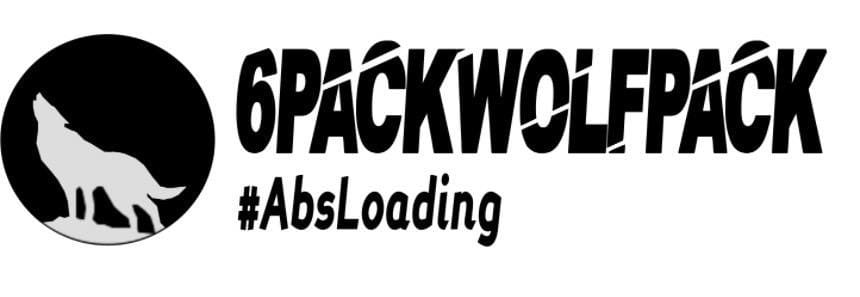Building an impressive physique requires more than just lifting weights. Behind every successful bodybuilder stands a meticulously planned nutrition strategy that fuels muscle growth, supports recovery, and maintains optimal performance. Understanding the fundamentals of nutrition can make the difference between mediocre and extraordinary results in your bodybuilding journey.
Understanding Macronutrients for Muscle Growth
Protein serves as the foundation of muscle building. The human body requires adequate protein intake to repair and build new muscle tissue after intense training sessions. Most successful bodybuilders consume between 1.6 to 2.2 grams of protein per kilogram of body weight daily. High-quality protein sources include lean meats, fish, eggs, dairy products, and plant-based alternatives such as legumes and quinoa.
Carbohydrates play an equally crucial role in the muscle-building process. They provide the energy needed for intense training sessions and help replenish glycogen stores depleted during workouts. Complex carbohydrates from sources such as sweet potatoes, brown rice, oats, and whole grains offer sustained energy release throughout the day.
Dietary fats, often misunderstood in bodybuilding circles, prove essential for hormone production and overall health. Healthy fats from sources such as avocados, nuts, olive oil, and fatty fish support testosterone levels and aid in nutrient absorption. A balanced approach typically includes 20-35% of total daily calories from healthy fat sources.
Meal Timing and Frequency
The traditional bodybuilding approach advocates for frequent meals throughout the day, typically eating every 2-3 hours. This strategy helps maintain a constant supply of nutrients, manage hunger, and potentially optimize protein synthesis. A typical meal schedule might include breakfast, mid-morning snack, lunch, pre-workout meal, post-workout nutrition, dinner, and evening protein.
Pre-workout nutrition deserves special attention. Consuming a balanced meal containing both protein and carbohydrates roughly 2-3 hours before training provides the necessary fuel for optimal performance. Many bodybuilders opt for easily digestible sources to avoid discomfort during training.
Post-workout nutrition focuses on replenishing depleted resources and jumpstarting the recovery process. The period immediately following training presents an optimal window for nutrient absorption. A combination of fast-digesting protein and carbohydrates helps initiate muscle repair and glycogen replenishment.
Hydration Requirements
Water intake remains crucial yet often overlooked in bodybuilding nutrition. Proper hydration supports nutrient transport, maintains blood volume, regulates body temperature, and aids in recovery. Most successful bodybuilders consume at least one gallon of water daily, adjusting intake based on climate, training intensity, and body size.
Supplementation Strategies
While whole foods should form the foundation of any bodybuilding diet, supplements can help fill nutritional gaps and support specific goals. Common supplements in bodybuilding include.
Whey protein powder provides a convenient source of high-quality protein, especially useful post-workout or when whole food options prove impractical.
Creatine monohydrate stands as one of the most researched and effective supplements for increasing strength and muscle mass.
Branch Chain Amino Acids (BCAAs) support muscle recovery and may help reduce exercise-induced muscle soreness.
Multi-vitamins help ensure micronutrient needs are met, particularly important during calorie-restricted phases.
Nutritional Periodization
Smart bodybuilders adjust their nutrition based on their current goals and training phase. During mass-building phases, caloric intake increases to support muscle growth. Cutting phases require strategic calorie reduction while maintaining protein intake to preserve muscle mass.
Common Nutritional Mistakes
Many bodybuilders fall into common nutritional traps that can hinder progress. Undereating proves just as detrimental as overeating. Insufficient protein intake limits muscle growth potential. Neglecting micronutrients impacts overall health and recovery capacity.
Sustainable Approaches to Bodybuilding Nutrition
Long-term success in bodybuilding requires developing sustainable nutrition habits. Extreme approaches often lead to burnout or rebound effects. Finding a balanced approach that allows for social situations and occasional treats while maintaining progress toward physique goals creates lasting results.
Monitoring Progress and Making Adjustments
Successful bodybuilding nutrition requires constant monitoring and adjustment. Regular progress photos, body measurements, and performance metrics help guide nutritional decisions. Small, strategic adjustments based on real-world results lead to optimal progress.
The Mental Aspect of Nutrition
Developing a healthy relationship with food proves essential for long-term success in bodybuilding. Understanding that nutrition serves as a tool for achieving physique goals, rather than an emotional crutch, helps maintain a balanced perspective.
Building Your Nutritional Foundation
Creating a successful bodybuilding nutrition plan starts with calculating basic requirements. Understanding maintenance calories, setting appropriate macro targets, and planning meal timing around training sessions builds a solid foundation for progress.
Looking Ahead
The field of sports nutrition continues evolving, with new research providing insights into optimal approaches for muscle growth and recovery. Staying informed about evidence-based practices while maintaining a foundation in proven nutritional principles serves bodybuilders well.
Every bodybuilder must find their optimal nutrition approach through careful experimentation and consistent application of fundamental principles. Success comes from understanding individual responses to different nutritional strategies and making informed adjustments based on progress and goals.
Remember that building an impressive physique takes time, consistency, and patience. The nutrition strategies outlined here provide a framework for success, but personal experimentation and adaptation remain key to achieving your ultimate bodybuilding goals.


